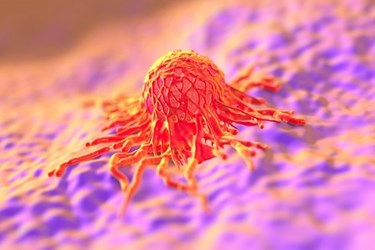Basilea's BAL101553, Radiotherapy Delays Tumor Growth
By Cyndi Root

Compared to BAL101553 monotherapy, Basilea’s investigational agent combined with radiotherapy significantly delays tumor growth. The company announced the Phase 2 results in a press release, stating that the study on treatment-refractory patients will be presented at the EORTC-NCI-AACR Symposium in Barcelona, Spain. The company also states that the agent has anti-tumor activity when administered orally or intravenously.
Dr. Laurenz Kellenberger, CSO of Basilea, said, "BAL101553 showed a profound anti-tumor effect in treatment-refractory models of human cancer after intravenous and oral administration in combination with radiotherapy. This further supports the compound's differentiated profile and its potential to treat patients with limited treatment options."
BAL101553
BAL101553 (prodrug of BAL27862) is a novel microtubule-destabilizing drug currently in Phase 2 trials. The small-molecule drug shows promise in a variety of cancers including those that are not responsive to standard treatments. The agent interacts with the microtubule network with a different mechanism than taxanes. With dosing flexibility, the agent may be utilized in different treatment scenarios. Basilea is developing companion diagnostics in order to optimize BAL101553 treatment. Basilea states that the agent is also important in its anti-infectives portfolio as cancer patients often contract infections.
BAL101553 Trials
BAL101553 is currently in phase 2a clinical development. In Phase 1, it showed anti-tumor activity and tolerability at the maximum dose. In the current data set that Basilea is presenting, Prof. Martin Pruschy at the Department of Radiation Oncology at the University Hospital Zurich showed that BAL101553 led to profound tumor growth delays when administered in combination with radiotherapy compared to BAL101553 alone.
In a taxane-refractory animal model of human cancer, intravenous or oral BAL101553 reduced tumor growth. Daily or weekly oral administration elicited anti-tumor responses. In a taxane- and epothilone- refractory animal model with a low response to radiotherapy, BAL101553 and radiotherapy almost completely stabilized the tumor over a long period.
Basilea’s presentation shows consistency in BAL101553 over several studies. The agent is effective at reducing cell proliferation when given alone and its effect is enhanced when administered in combination with ionizing radiation. The company’s presentation is titled, “The novel microtubule-destabilizing drug BAL101553 (prodrug of BAL27862) sensitizes a treatment refractory tumor model to ionizing radiation.”
